07:41
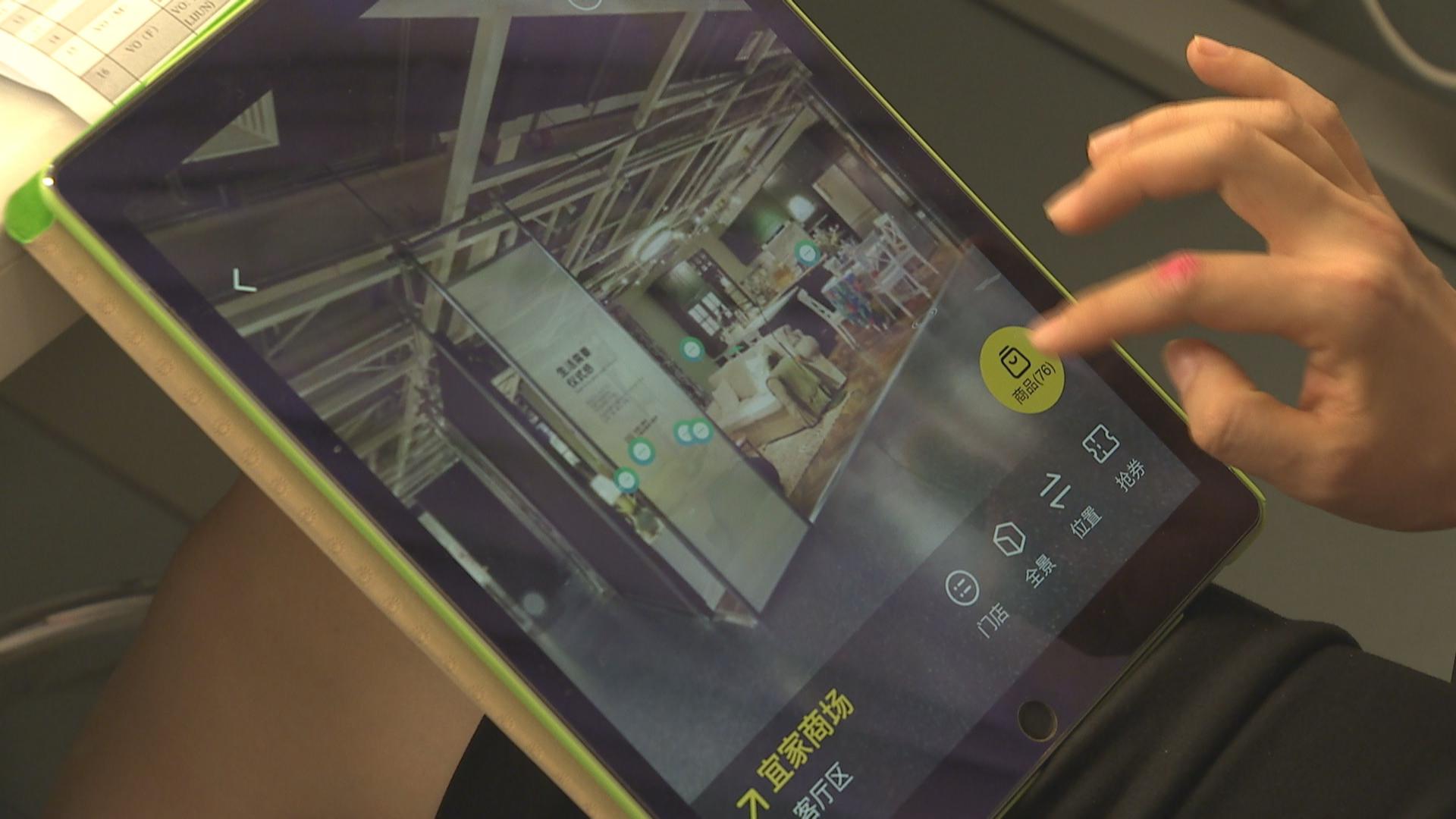
The pandemic has shifted people's buying habits even more from offline to online. Shops and e-commerce platforms are working tirelessly to perfect the consumer experience to attract more customers. And this year's June 18 mid-year shopping festival, the application of AR in e-commerce is one of the highlights.
Many furniture stores have moved their entire showrooms online. The first batch has more than 100 brands adopting the technology, including IKEA, with 1:1 production of its 3,000 square kilometer store being shifted into the digital realm. That came after the company closed all of its offline stores at the end of January due to the pandemic. Moving things online with the help of digital technology has helped the company offset the loss of its offline stores.
02:30

Amy Zhang, Ingka Global Platform Development Manager at Ikea China, said: "To achieve online-offline integration has always been Ikea's key strategy direction, with the pandemic and people's shopping behavior changes, this direction has become even more important. This is why Ikea has been focusing a lot on establishing new touchpoints such as Tmall."
These tech-savvy online stores make it feel like you are walking through a real showroom in a big furniture store when you are just on your phone and in the comfort of your own home. The pandemic has brought on newfound urgencies, especially for traditional businesses struggling with stagnation, to use technologies to draw visitors to their online stores.
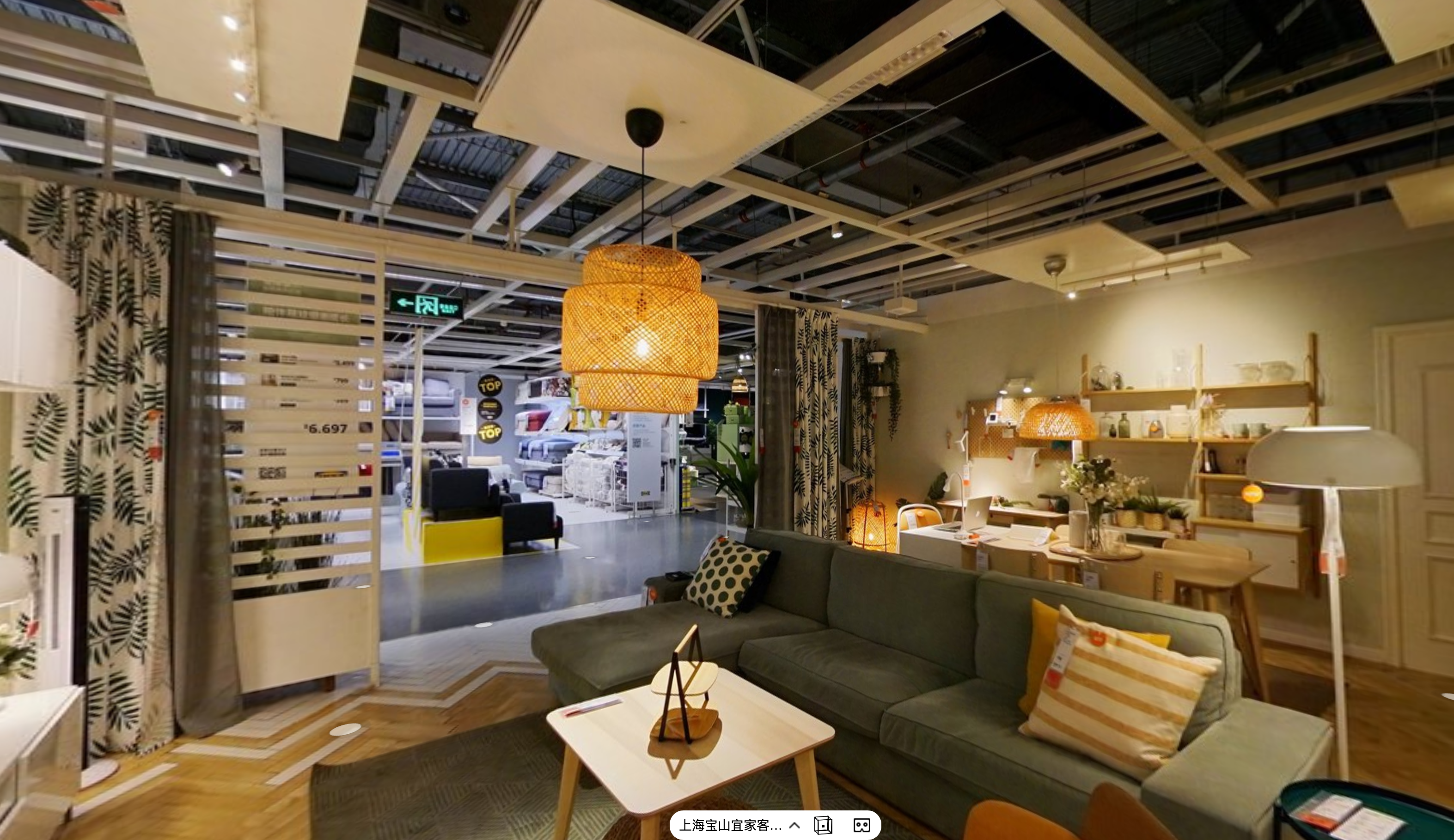
But there are limitations to the 3D technology as well ... long development time, high costs, to name a few, which can be a deal-breaker to smaller stores.
Tmall is working to lowering costs, shorten development time, and improve quality further to attract more online stores to adopt the 3d technology.
Xiao Yong, general manager of the Home Renovation department on Tmall, said: "Most of the 3D online furniture stores took around two months to prepare for the 618 shopping festival. That a long time. What is important now is to lower the entry point and make it more efficient so that more stores can participate in 3D online shopping. It is predicted that around 80 percent of our home renovation stores would establish their 3d stores by this year's double 11 shopping festival."
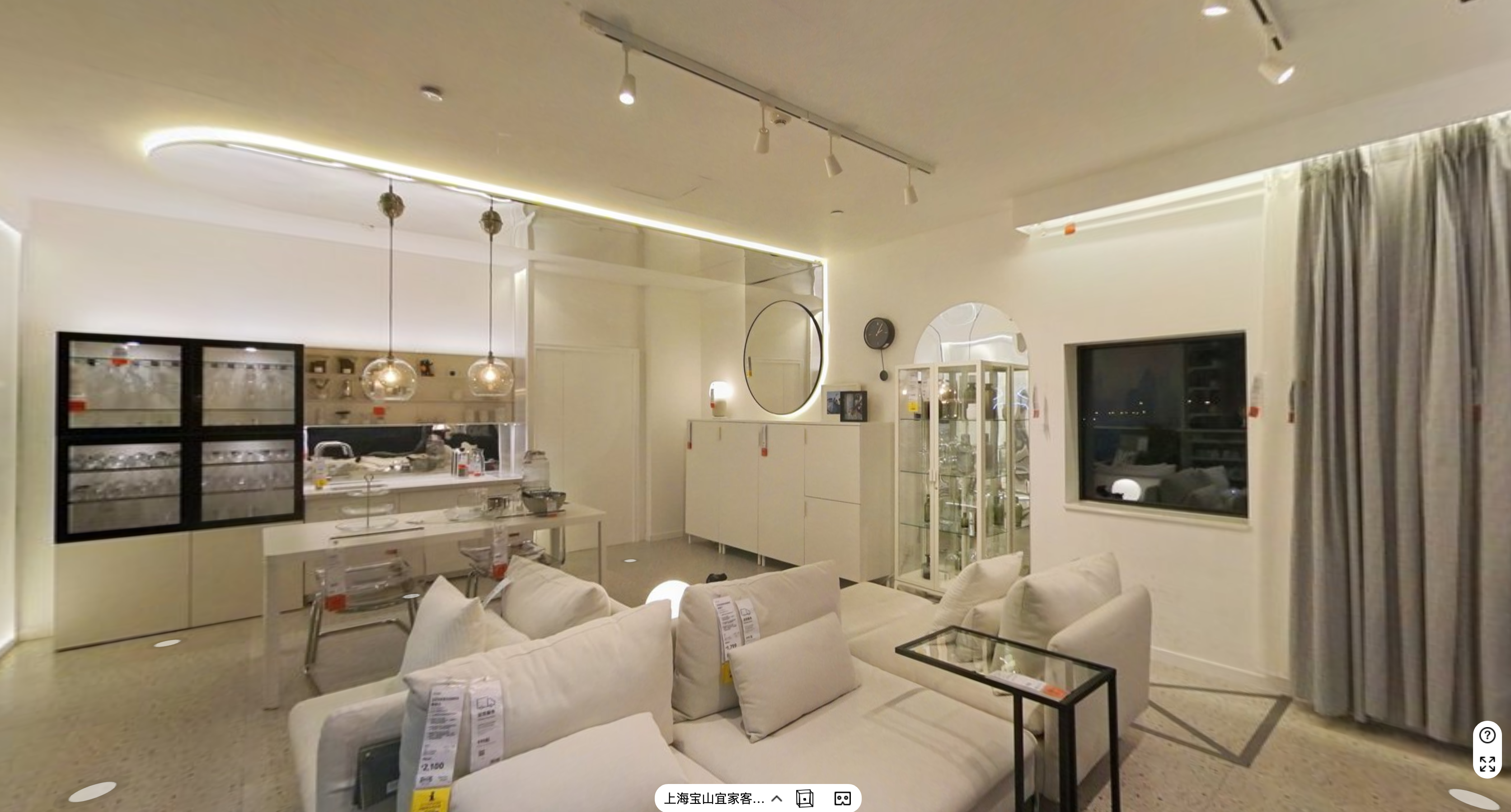
The use of 3D technology has attracted more than 5 million visits in just the first three days of the shopping festival starting June 1. More than 100 stores have sold more furniture in the first hour of the shopping festival than the whole first day last year.
The entire home improvement sector sales went up 16 times in the first hour of the shopping festival compared to last year.
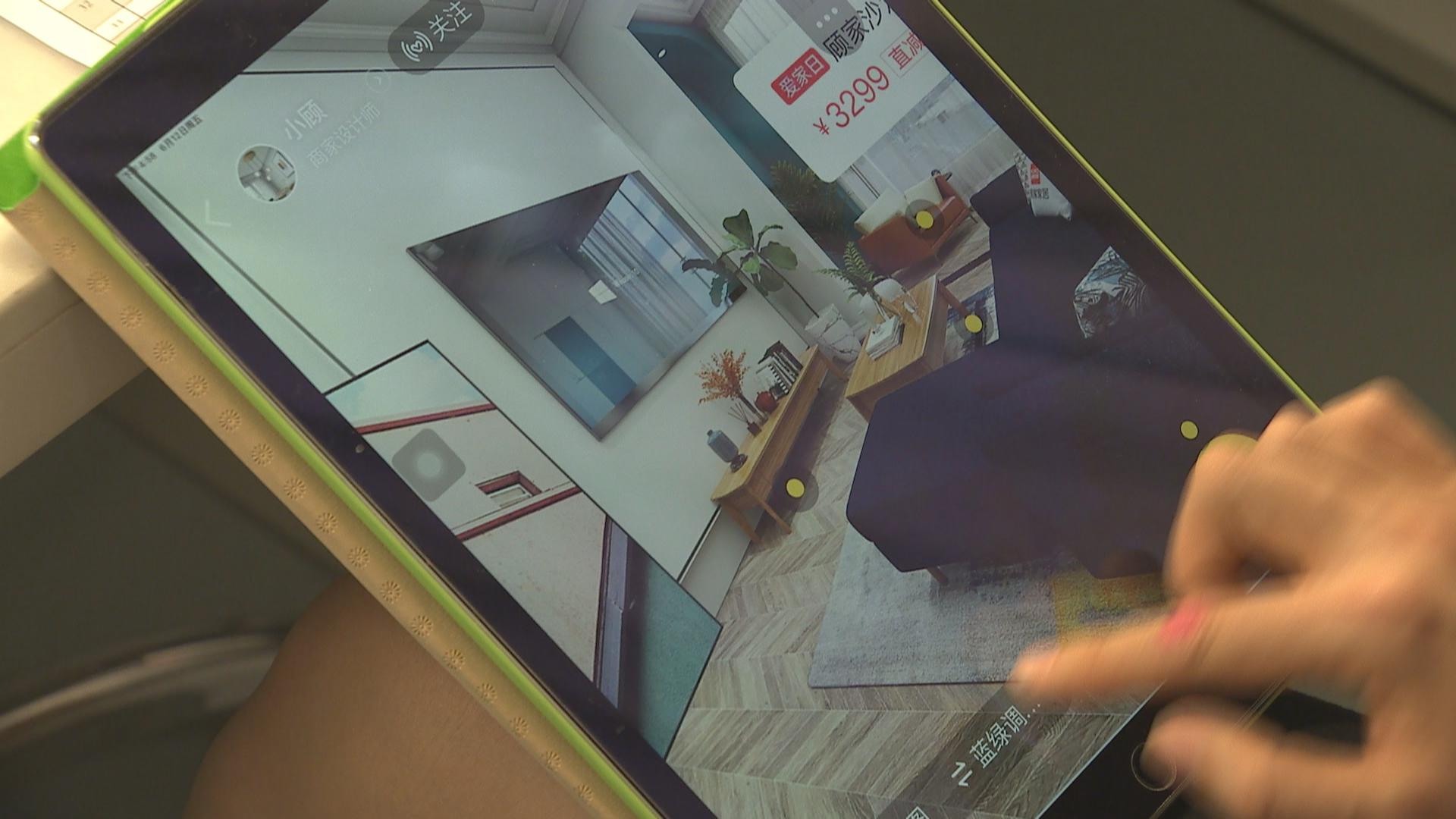
Online shopping by an ipad /CGTN
Online shopping by an ipad /CGTN
The pandemic has caused nationwide stagnation in the home renovation industry, with sales dropping by more than 48 percent in brick and mortar stores.
The June 18 online shopping festival has reversed that trend … Some shop owners say that the lost March is finally back.
Besides shopping for furniture and appliances, cosmetics and clothing stores have also applied AR in their online stores. From trying on shoes and sunglasses, to cosmetics, everything can be done on your smartphone in the comfort of your own home. The AR technology detects your face, body, and feet and can apply the products you like on them to see how they fit.
Ye Mengqiang, head of AR/VR at JD.com, said AR allows consumers to try products before buying online. It's an upgrade for traditional online shopping to immersive online shopping."
Being able to try things on in AR helps customers to make better decisions faster, and that leads to more sales.
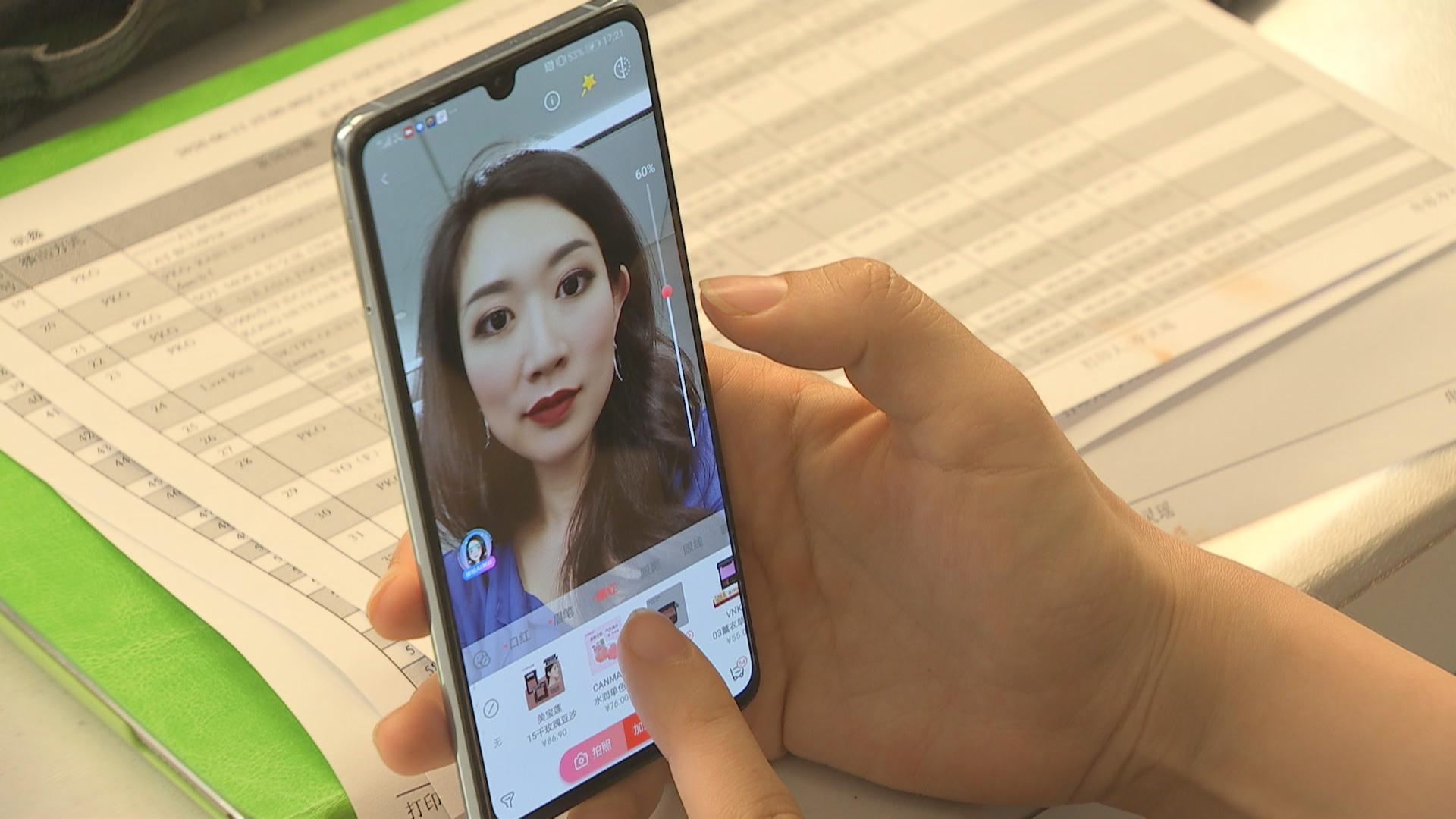
CGTN's Michelle Van den Berghanchor trying AR lipsticks by a mobile. /CGTN
CGTN's Michelle Van den Berghanchor trying AR lipsticks by a mobile. /CGTN
But there are some limitations to it as well. Take lipsticks for example, How close can the color on the screen be to the actual product color? Would the color change when you actually apply it on your face?
Wang Yong, a makeup artist at CGTN, said: "It looks fun and to a certain degree you can try to see what it would look like on you. But when you add the color to your lips, for example, it might not be exactly the same as what you see on the screen."
Major e-commerce platforms have recognized the challenges and are working on perfecting the technology.
Ding Haixia, operational manager at Tmall Cosmetics, said they have been trying to improve our AR experience technology since last year, including making the colors more realistic, working on reduction degree.
Looking ahead, experts say that the next big growth step for AR shopping is the wide application of AR headsets, and that will take another three to five years to develop. When AR headsets become part of our lives, it will bring our shopping experiences to a new level.